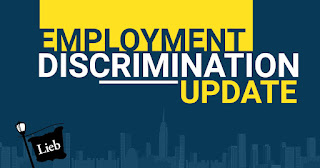On October 30th, 2023, President Biden issued an Executive Order (EO) addressing discrimination caused by artificial intelligence (AI), amongst other topics.
The White House announced this EO in seeking to prevent AI from leading to and deepening discrimination, bias, and other issues in justice, healthcare, and housing.
Now, agencies will be empowered to combat algorithmic discrimination, while enforcing existing authorities to protect anti-discrimination rights and safety.
In summary, the Executive Order:
- Calls for clear guidelines to keep AI algorithms from being used to exacerbate discrimination by landlords, Federal benefits programs, and Federal contractors.
- Tackles algorithmic discrimination through training, technical assistance, and coordinates with the Department of Justice and Federal civil rights offices for best practices to investigate and prosecute AI civil rights violations.
- Ensures fairness throughout the criminal justice system by developing best practices for the use of AI in sentencing, parole and probation, pretrial release and detention, risk assessments, surveillance, crime forecasting and predictive policing, and forensic analysis.
The Biden Administration Blueprint for an AI Bill of Rights sets out steps those using AI can take to ensure fairness and equality. The steps include regularly checking for and addressing any biases in the design and use of AI systems, using diverse and representative data to avoid discrimination or unfair impacts, ensuring accessibility for people with disabilities during the design and development of AI systems, conducting tests to identify and address any disparities before and after the AI system is in use, providing clear oversight from organizations to ensure fairness, and conducting independent evaluations and sharing easy-to-understand reports, including test results and how any issues are being addressed, to ensure these protective measures are in place.
If companies fail to comply and use AI incorrectly to deepen discrimination and bias, this Executive Order will become the basis for discrimination lawsuits as a result of the incorrect use.
To learn more about the Executive Order click here. To read the Biden Administration Blueprint for an AI Bill of Rights click here.



